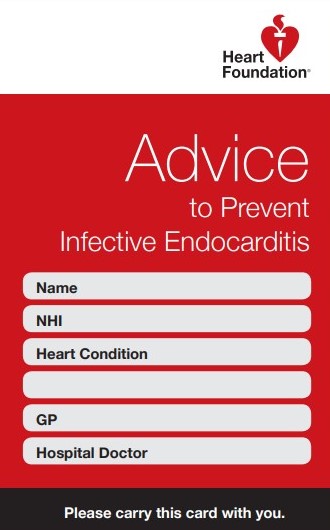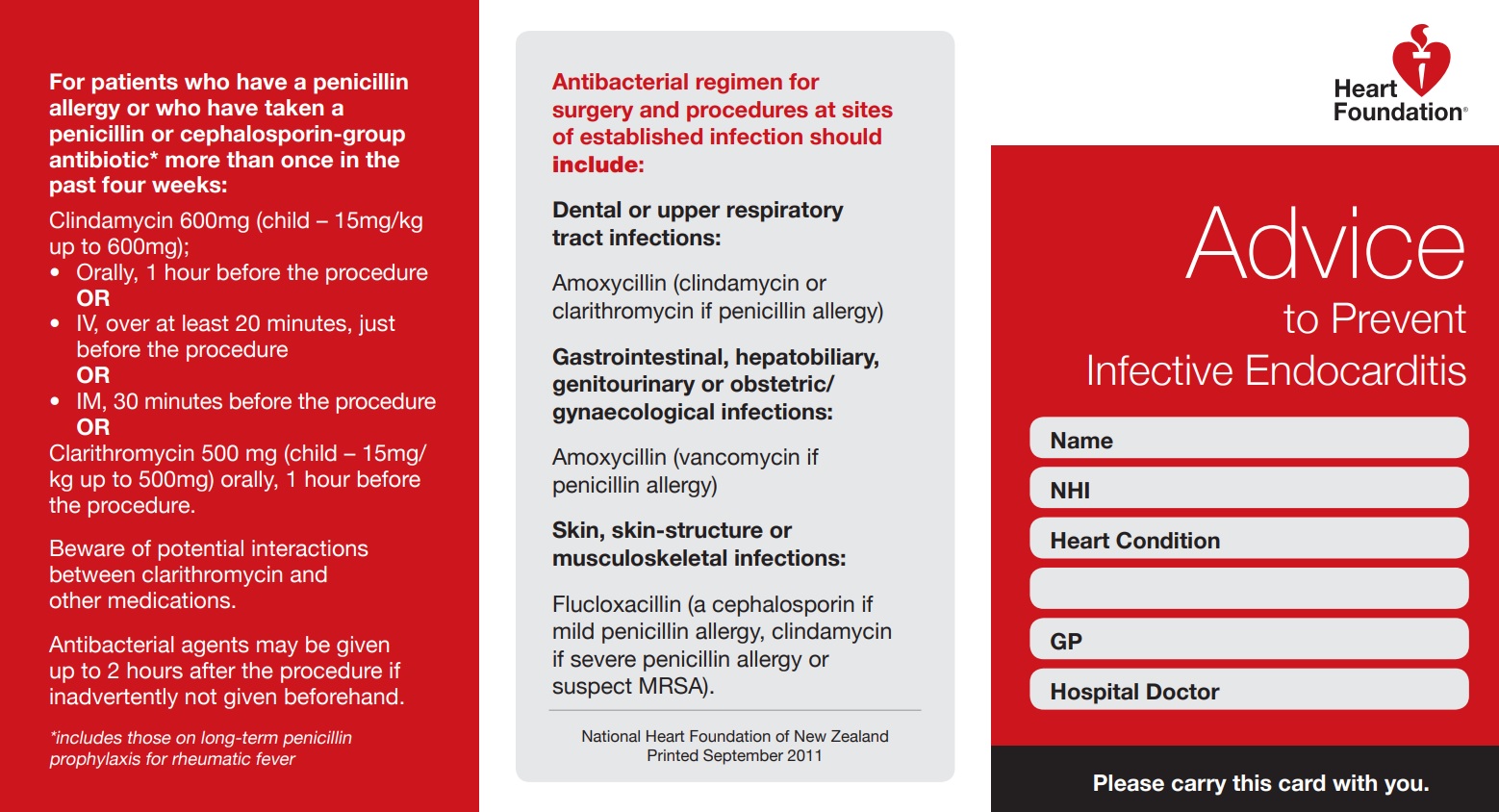Infective endocarditis can affect anyone, but people who have specific heart problems are at increased risk, eg, if you have:
- previously been diagnosed with rheumatic heart disease
- a condition that affects your heart valves
- have had a replacement heart valve within 6 months
- previously been diagnosed with infective endocarditis
- some types of heart condition from birth (congenital heart disease), even if you have had an operation to correct the problem
- non-medical intravenous drug use.








